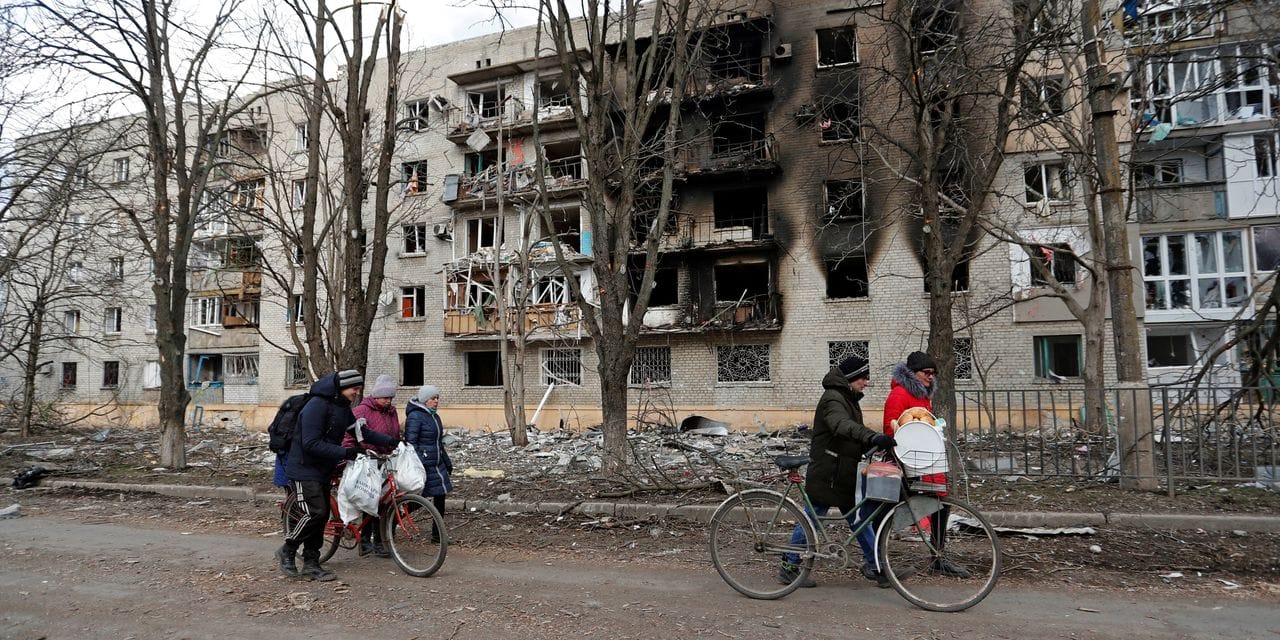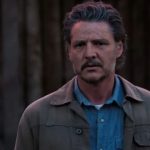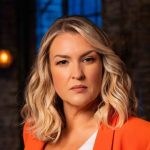The International Court of Justice on Wednesday instructed Russia to suspend its work Military operations in Ukraineissuing a preliminary but potentially unenforceable order in the Kyiv suit alleges that the Kremlin justify its invasion Under the false pretext of stopping an alleged genocide in the Russian-speaking Luhansk and Donetsk regions of Ukraine.
The International Court of Justice, an arm of the United Nations based in The Hague, does not have independent authority to enforce its decisions, and Russia has already argued that the 15-member court lacks jurisdiction over the dispute.
Ukrainian President Volodymyr Zelensky welcomed the decision of the International Court. Russia must comply immediately. “Ignoring it will further isolate Russia,” he wrote on Twitter.
But the 13-2 decision, with only Russian and Chinese judges objecting, adds a legal dimension to the diplomatic condemnation and economic sanctions that the Kremlin’s invasion has sparked around the world.

International Court of Justice in The Hague, Netherlands.
Photo:
Vyacheslav Prokofiev / Zuma Press
Separately, the International Criminal Court, also based in The Hague, has opened an investigation into possible war crimes committed in Ukraine. While the International Court of Justice hears disputes between nations, the International Criminal Court can try individuals it considers most guilty of atrocities.
The Prosecutor of the International Criminal Court, Karim Khan, traveled Wednesday to western Ukraine and Poland, held a virtual meeting with Mr Zelensky and visited a refugee centre. He said he is also seeking to meet with Russian officials.
Mr Khan said he was working to “establish the truth and ensure that individuals responsible for international crimes are held accountable in a court of law”. Those participating in hostilities “must know that when wearing a military uniform or bearing arms, they are not relieved of responsibility but in fact incur additional legal obligations.”
Actions against Russia are also pending at the European Court of Human Rights, in Strasbourg, France, which has issued temporary measures directing Moscow to stop “military attacks against civilians and civilian objects”.
President of the International Court of Justice Joan Donoghue, Read Wednesday’s decision At the Peace Palace in The Hague, he said Ukraine had made a reasonable case and therefore Moscow should halt military operations to avoid further harm while proceeding with legal proceedings.
“The court is fully aware of the scale of the human tragedy unfolding in Ukraine and is deeply concerned about the continuing loss of life and human suffering,” said Judge Donoghue, a former US attorney at the US State Department. She said Russia’s use of force “raised very serious issues in international law”.
The court’s decision states: “Ukraine considers that the Russian Federation has “turned the Genocide Convention upside down”, having made a false allegation of genocide as the basis for actions on its part that constitute gross violations of the human rights of millions of people around the world. Ukraine.”
Both Russia and Ukraine are parties to the Genocide Convention and have given the International Court the power to settle disputes under the treaty. But only the UN Security Council can take action to implement court decisions, an unlikely prospect with Russia holding a veto.
Russia failed to appear at last week’s hearing in the Ukraine case, instead submitting a letter denying the court’s jurisdiction to hear the dispute.
In a letter to the World Court, Moscow said it did not formally invoke the Genocide Convention when reporting to the United Nations about its military operations and that comments by Russian officials alleging alleged genocide could not provide jurisdiction for the International Court of Justice.
“While President Putin’s letter ‘to the citizens of Russia’ appended to the notification may in certain contexts refer to genocide, this reference is not the same as invoking the Convention as a legal justification for its action,” the opinion said, Russia argued.
The court did not agree, finding that Russian officials since 2014 have accused Kyiv of genocide and that a government agency in Moscow has brought charges against Ukrainian officials. The fatwa states that it is clear that a disagreement over the treaty is sufficient to justify the court’s intervention.
Judge Donoghue said the court’s initial actions have a “binding effect”, “and thus create international legal obligations” on the countries subject to it.
The court said it had no credible evidence to support Russia’s allegations of genocide.
However, Ukraine did not get everything it asked for. The court rejected Kyiv’s request to order Moscow to submit a weekly report on its actions to comply with the ICJ ruling.
Share your thoughts
Is there any value to a ruling from a world court that cannot be enforced because Russia has a veto in the UN Security Council? Join the conversation below.
Judge Kirill Gevorgyan, a former Russian diplomat, and Xu Hankin, a former Chinese diplomat and law professor, objected. Their written data was not immediately available.
Judges from Australia, Brazil, France, Germany, India, Jamaica, Japan, Lebanon, Morocco, Slovakia, Somalia and Uganda joined Judge Donoghue by majority, as did a temporary judge appointed by Ukraine.
Wednesday’s decision concluded that the court was likely to have jurisdiction, but left the final decision on the case for further proceedings.
The judges unanimously instructed Russia and Ukraine to refrain from actions that “may aggravate the dispute, extend it before the court or make it more difficult to resolve.”
In a hypothetical address to Congress on Wednesday, Ukrainian President Volodymyr Zelensky referred to Pearl Harbor and 9/11 in a repeated call for a no-fly zone, and asked the United States to escalate sanctions and other economic sanctions against Russia. Photo: Drew Angerer/Paul Press
write to Jess Bravin at [email protected]
Copyright © 2022 Dow Jones & Company, Inc. all rights are save. 87990cbe856818d5eddac44c7b1cdeb8






